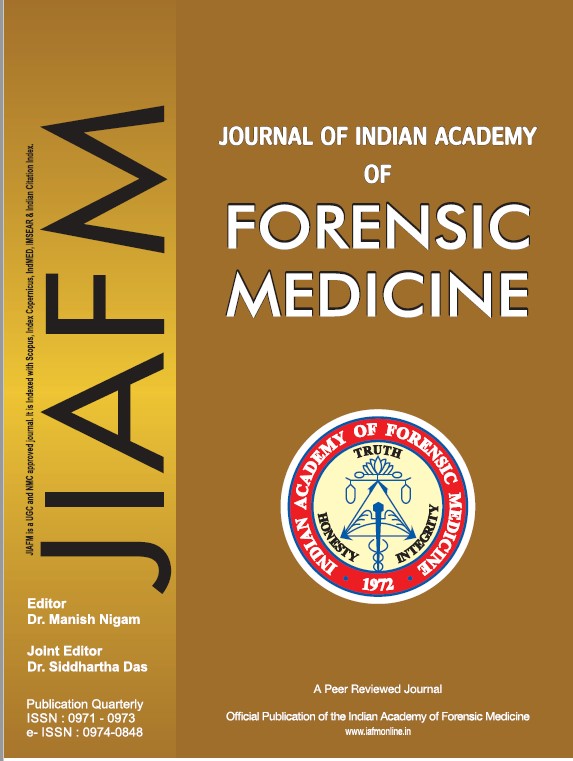Ethical and Legal Aspects of Required Request for Organ Donation
DOI:
https://doi.org/10.48165/Keywords:
Required Request, Ethical Issues, Legal Issues, Organ DonationAbstract
The demand for organs is ever increasing globally and even after coming out with many innovative measures to deal, the scarcity of organs continues to be of major concern for both developing and developed nations. This is a review research article wherein articles were searched using ‘Google’ search engine and hard copies available in the library of medical college. The articles were selectively filtered based on full text availability and access to references and a total of 20 articles were reviewed to study various ethical and legal complications arising out of required request for organ donation. Required request though initially seemed to be a very effective measure to overcome the shortage of organs, it has its issues which are highly debatable with respect to conflicts of treating doctor, psychological aspects of family members of patient, economic constraints and rights of donor. It is better to adopt strategies which are widely accepted and are less controversial before going for required request.
Downloads
References
http://timesofindia.indiatimes.com/aboutorgandonation.cms 2. http://skeptics.stackexchange.com/questions/9948/can-we-solve most-blindness-by-cadaver-donationcan-we-solve-most-blindness by-cadaver-donation
http//www.dnaindia.com/india/report-only-one-in-a-million-indians donates-organs-1879110.
The potential impact of an opt out system for organ donation in the UK,Opt in and opt out, November 2008
New York Public Health Law, Sec. 4351 (1985).
Fred Plum, Jerome B Posner. The Diagnosis of Stupor and Coma, 3rd edition, Philadelphia: F.A. Davis Co., (1983) 313. 7. Howard H., Kaufman, Joanne Lynn. "Brain Death," Neurosurgery 19:5 (November 1986), 855.
Uniform Anatomical Gift Act Sec. 7 (b).
James F. Childress, "Some Moral Connections Between Organ Procurement and Organ Distribution," Journal of Contemporary Health Law and Policy, V. 3 (1987), 85-110
A. Earl Walker. Cerebral Death. (Baltimore: Urban and Schwarzenberg, 1985), 136.
Stuart J. Youngner et al. "Psychosocial and Ethical Implications of Organ Retrieval," New England Journal of Medicine 313:5 (August 1985), 321-23.
Stuart J. Youngner. "Toward Greater Donor Organ Availability for Transplantation," New England Journal of Medicine 312:5 (January 1985), 319.
Elizabeth Kubler-Ross. On Death and Dying (New York: Macmillan, 1969); Harriet Sornoff Schiff, the Bereaved Parent (New York: Crown Publishers, 1977).
Department of Health and Human Services, Health Care Financing Administration Proposed Rule, 52 Fed. Register 28666-28677 (July 31, 1987).
Douglas J. Besharov, Jessica D. Silver, "Rationing Access to Advanced Medical Techniques," The Journal of Legal Medicine 8 (November 4, 1987), 507-32.
E. Corsini et al. "Cyclosporine A and Transplantation: The Financial Impact," Dialysis and Transplantation 15:9 (September 1986), 496-507
Associated Press wire story, The Toledo Blade (September 11, 1986), p. 6 col. 1.
Michael E. Whitcomb. "Health Care for the Poor: A Public Policy Imperative," New England Journal of Medicine 315:19 (November 6, 1986), 1220-22.
Burke. "Why Not Spend Organ Funds on Other Programs," p. 9. 20. Caplan. "Requests, Gifts, and Obligations: The Ethics of Organ Procurement," Transplantation Proceedings 18:3, Suppl. 2 (June 1986), 49-56; see William E. Parks et al., "Ethical Issues in Transplantation," Surgical Clinics of North America 66:3 (June 1986), 635-36.


